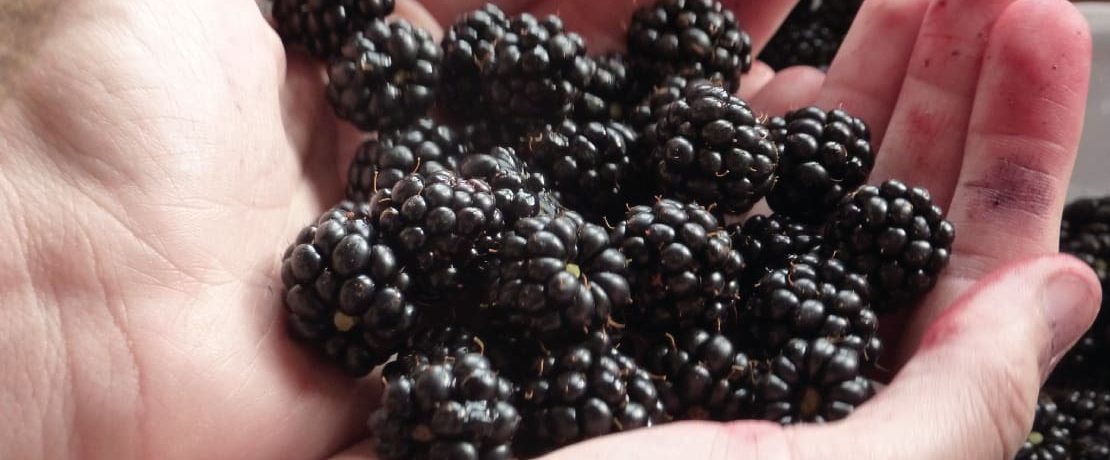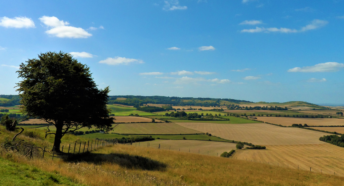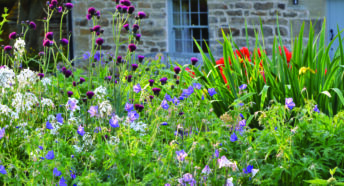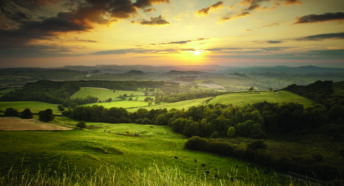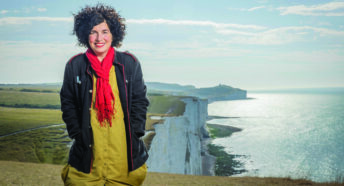Free to forage
Writer and broadcaster Rosie Boycott reflects on the pleasures of seeking out our own food.
When I was a child, we spent every summer holiday in Jersey, where my mother had been born. My grandmother had a tiny house, right on the La Rocque beach, on the south of the island. I didn’t realise it at the time, but La Rocque is famous for having one of the biggest tides in the world.
Twice a day, a moonscape of rock pools, sandbars and gulleys that stretched almost a mile out to sea would be there for us to explore and fish. We certainly didn’t call it foraging, but that’s what we were doing, taking advantage of nature’s bounty to provide our food.
We’d eat delicate pink shrimps, piled high on brown bread and butter; juicy crabs found under the seaweed banks; sea bass that my father would catch by stretching hooked lines between rocks; plaice and flounders that lurked in the sand in rock pools. Every day, I recall, at least one meal came from the generosity of the sea.
But our family foraging habits didn’t end there. In the autumn we’d go blackberrying and mushrooming, and my father often made sloe gin. I didn’t call it foraging until I was much older, but by then the habit was well entrenched and there are few things I like more than heading out into the countryside to see what I can find to eat.
Nowadays, it’s the wild garlic that kicks the season off. I live between London and Somerset and by early May, the hedgerows in the West Country are thick with delicate white garlic flowers. It’s a voracious plant, as well as a delicious one. We have a tried and tested recipe for wild garlic soup that’s quite delicious.
Summertime scents
As June gives way to July, I wait anxiously for the elderflower blossoms to be exactly right to make cordial. We’ve been making elderflower cordial for many, many years, and for me, the secret to a great batch is picking the fat white flowers on a really hot day, when they are giving off their heady, unique aroma, perfuming the air around them. If you pick them then, immediately cover with boiling water and sugar, that special smell – of summer, of hedgerows, of England in June – is not just stronger, but carries over well into the cordial. We bottle and freeze them immediately. Twenty years ago, offering a guest a glass of elderflower was a novelty, but even though the cordial is now available in every supermarket, nothing tastes better than what you’ve made at home.
I’ve picked elderflowers in the city, too – on the banks of Regent’s Canal, on Hampstead Heath and Richmond Park. Foraging in the city might seem like a fruitless pastime, but if you know what to look for (and wash it carefully) then there is much to find. Dandelions, nuts, sorrel, nettles, mint, parsley, crab apples, blackberries and sloes grow in hedges, on verges and in parks.
A timeless pastime
Foraging, after all, is about more than just trying to find a bit of free food. It’s about making a connection to the wild world, reminding us that all foods begin with growing things, nurtured by soil, sunlight and water. Especially in a city, foraging is the ultimate antidote to prepackaged, processed food.
Foraging is an age-old process. During the World War II, rosehips were gathered because of their high vitamin C content: today you can make fabulous – and healthy – rosehip syrup and jelly every autumn for free. Far healthier than buying a bottle of vitamins, and much more fun, too!
Foraging plays a vital role in the ‘real food’ renaissance: after all, there is a no more direct connection between our plates and the natural world.
This article, or a version of it, was originally published in CPRE’s award-winning magazine, Countryside Voices. You’ll have Countryside Voices sent to your door three times a year, as well as access to other benefits including discounts on attraction visits and countryside kit from major high street stores, when you join as a CPRE member. Join us now.
